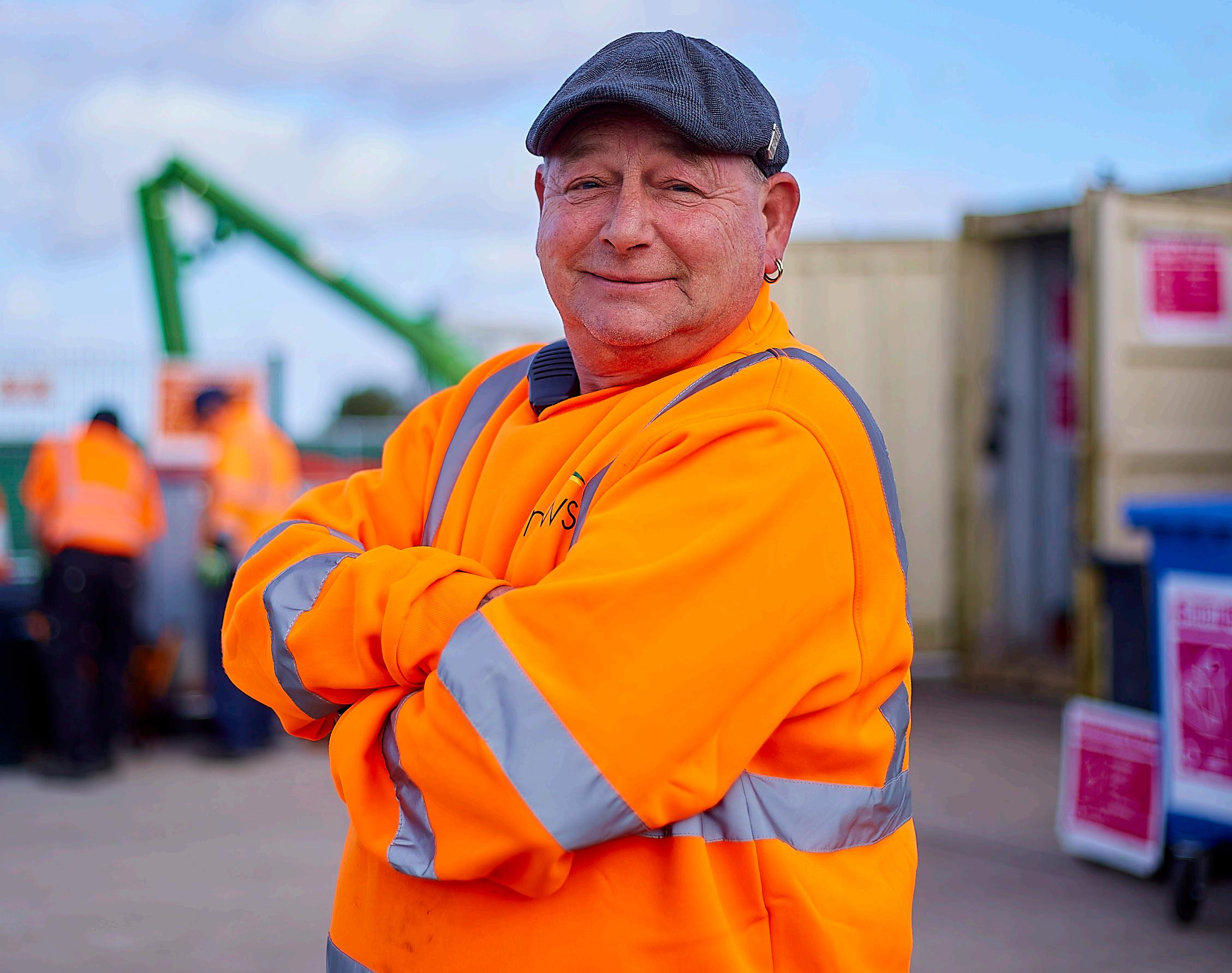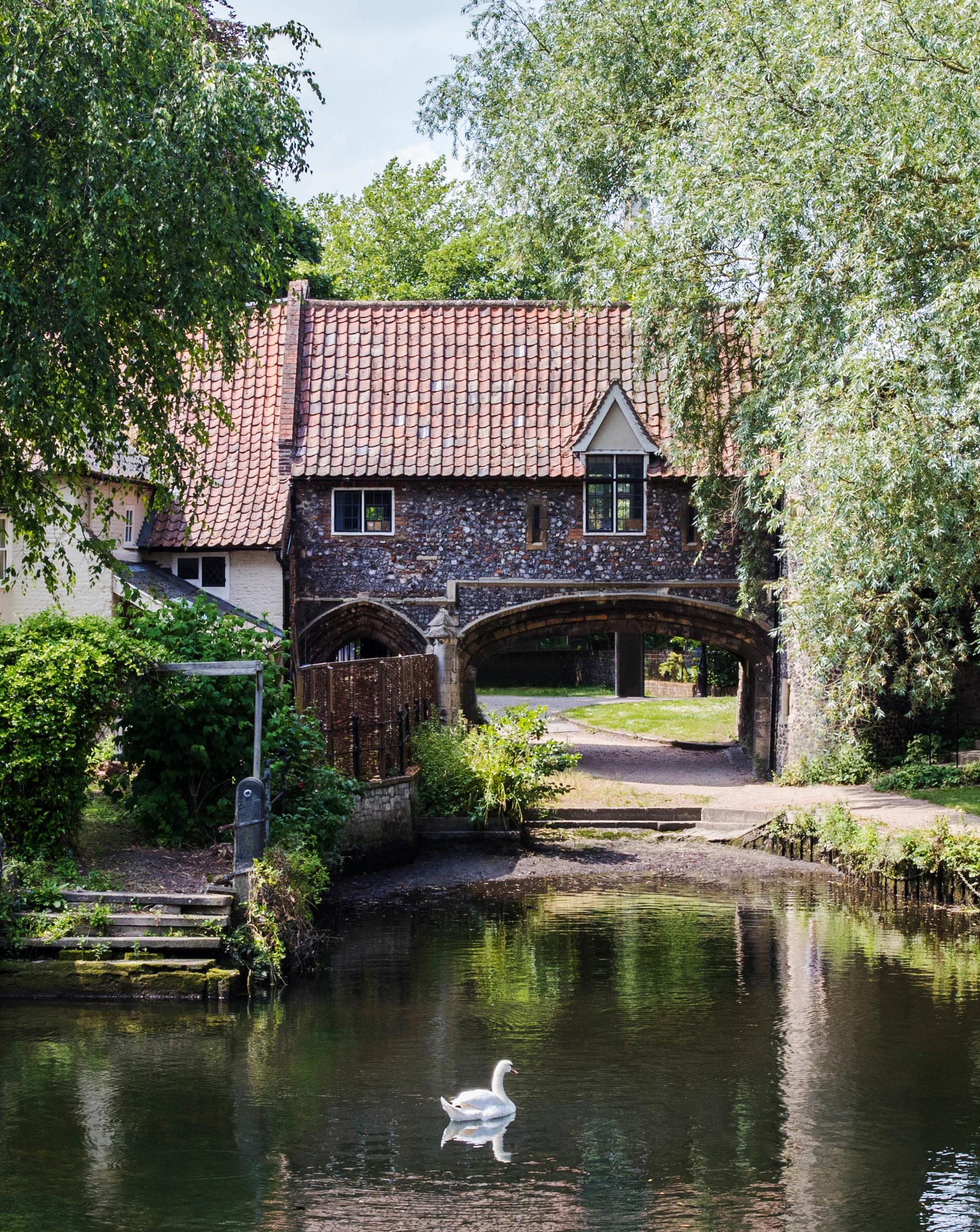NORFOLK COUNTY COUNCILPAVES THE WAY FOR ECONOMIC GROWTH AND SUSTAINABILITY


SUPPORTED BY



SUPPORTED BY
In 2024, Norfolk County Council has demonstrated an ongoing commitment to fostering local growth, job creation, environmental sustainability, and community empowerment. Facing challenges in achieving funding autonomy, the council has worked diligently to secure innovative investment avenues and collaborations. With pivotal projects and plans on the horizon, Norfolk County Council is striving to transform the county’s economic landscape while addressing residents’ needs.



NORFOLK COUNTY COUNCIL PROJECT DIRECTED BY: JAMIE WAITE


A key development for Norfolk this year was the planned, though subsequently halted, £600 million Devolution Deal. This agreement, initially arranged with the UK Government, promised to transfer significant funds and powers to the county, earmarked for major infrastructure and local economic investments over a 30year period. This initiative sought to grant Norfolk County Council greater autonomy in prioritising and managing economic resources tailored to local needs, covering essential areas like transportation, housing, and job creation. This deal held substantial promise, including a £20 million per year allocation to drive local infrastructure, transit systems, and more affordable housing projects. Despite the government’s recent decision to pause the initiative, Norfolk County Council remains hopeful for future negotiations and is pressing for alternative arrangements that would allow Norfolk to access similar benefits.
Parallel to economic ambitions, Norfolk County Council has also invested in forward-thinking environmental programs. The Norfolk Climate Change Partnership has championed the Net Zero Communities project, supported by a £300,000 Innovate UK grant. This initiative, set to run through 2025, involves collaboration with seven pilot communities, including Norwich and Great Yarmouth, to facilitate carbon reduction at a local level. Focused on practical solutions to decarbonisation, the project helps residents and businesses implement energy-efficient practices, renewable energy adoption, and greener transportation. The ultimate goal is not only to reduce Norfolk’s carbon footprint but also to enhance the quality of life and foster sustainable local economies.
Additionally, the council’s emphasis on green transportation is evident in its recent strides toward expanding electric


From its base in Norwich, Norse provides services to local authorities across the UK by forming joint venture partnerships. These range from architecture and property consultancy to waste collection, street cleansing, grounds maintenance and facilities management.
The group is one of Norfolk’s largest employers and has a daily impact on the lives of local residents, but most of its revenues come from outside the county; Norse operates as far away as Devon, Wales, the south coast, Staffordshire and Yorkshire.
Celebrating 36 years in business, Norse Group is the UK’s largest local authority trading company (LATCO), wholly owned by Norfolk County Council. The group is one of Norfolk’s largest employers and provides services across the county, including school meals, transport, highways maintenance, building repairs and property services.
The group also runs the county council’s care homes through its company Norse Care.
Although, as its ownership implies, a proportion of its work is carried out in Norfolk, Norse supports local authorities and businesses across the UK, employing 9,000 people nationwide; by bringing money into Norfolk, the company makes a significant contribution to the local economy.
Amongst Norse’s local operations, its company NEWS – a joint venture with Norfolk’s city and district councils – processes their recyclable waste in its state-ofthe-art recycling facility on the outskirts of Norwich.
“Our range of services and the experience of our team gives partner organisations the confidence to concentrate on their core operations,” said Justin Galliford, CEO. “We take a
forward-thinking and qualitydriven approach to our services, ensuring that we deliver the right solutions for our clients’ needs, whilst supporting the communities in which we operate.”
Now, Norse wants to use the foundation of its pioneering partnership model to develop its offering, with a strong focus on governance and social value. The business has made a commitment to achieve net zero by 2050. However, at the front of its mind is what additional value it can bring to its customers and partners. “We are currently exploring a groupwide suite of measures for net zero, which our local authority clients would benefit from,” explained Justin, “this includes implementing alternative, sustainable fuel for our fleet of two thousand vehicles”.
Norse supports the county council’s drive for social value, tackling the likes of food poverty by supporting

initiatives such as the Norfolk Community Foundation; this helps provide food hubs across Norfolk to combat food insecurity and make sure no one in the county goes hungry. Justin Galliford also represents the business on the prison Employment Advisory Board, providing skills training and helping prisoners find employment upon release – thus reducing their likelihood to reoffend: “If we can support prison leavers into employment they are 50% less likely to reoffend, which in turn saves the £50,000 it costs each year to house each prisoner.
As a local company with a national presence, Norse Group is proud to support Norfolk County Council and the county’s residents, and looks forward to increasing its contribution as its growth continues in the future.
norsegroup.co.uk

vehicle infrastructure and promoting more eco-friendly transit options. These projects align with Norfolk’s broader climate objectives and underscore the council’s commitment to pioneering green living within the county.
Norfolk County Council is highly attuned to the needs of local businesses and the importance of a skilled workforce. As part of its economic development strategy, the council has introduced training initiatives and resources for entrepreneurs, aiming to help local businesses adapt to market changes, especially post-Brexit. This focus on skill-building and employment growth addresses both economic and social resilience, fostering a competitive workforce ready to tackle emerging industries.
Another priority has been promoting community engagement in decisionmaking. The council has invited residents to contribute input on a range of projects, from housing developments to climate strategies, creating a culture of inclusivity that aims to reflect public interests in policy decisions.
Affordable housing remains a top priority for Norfolk County Council. Recognising the growing housing demand, the council has advocated for strategic urban planning and new affordable housing projects across the county. This year, efforts included advancing affordable housing projects in Norwich and expanding housing in both urban and rural areas. While the paused devolution deal held significant promise for accelerating these developments, Norfolk remains committed to identifying alternative funding to continue addressing housing affordability.
The council’s infrastructure work extends to road and digital connectivity, both essential for business expansion and the well-being of Norfolk’s residents. Improvements to transportation links, including expansions in bus and cycling lanes, have been part of the council’s commitment to making Norfolk more accessible while reducing carbon emissions. Future projects are expected to bring Norfolk’s infrastructure further in line with modern demands.
Norfolk County Council continues to prioritise community well-being, offering robust support across health, social care, and youth services. The council’s investment in mental health services and family support programs has provided valuable resources to residents across age groups. Additionally, the council has emphasised the importance of libraries and digital learning hubs, investing in resources that foster education and digital literacy for all ages.
As Norfolk County Council heads into 2025, it continues to advocate for both economic and environmental progress, demonstrating resilience in response to the challenges facing the county. Its initiatives in business support, housing, green infrastructure, and community involvement highlight its dedication to sustainable development and improving residents’ lives. With ongoing negotiations for funding and a strong focus on locally tailored policies, Norfolk County Council is poised to remain a driving force in the region’s growth and sustainability.
For more details on the council’s projects and ongoing efforts, visit the Norfolk County Council website, www.norfolk.gov.uk



www.norwich.gov.uk
